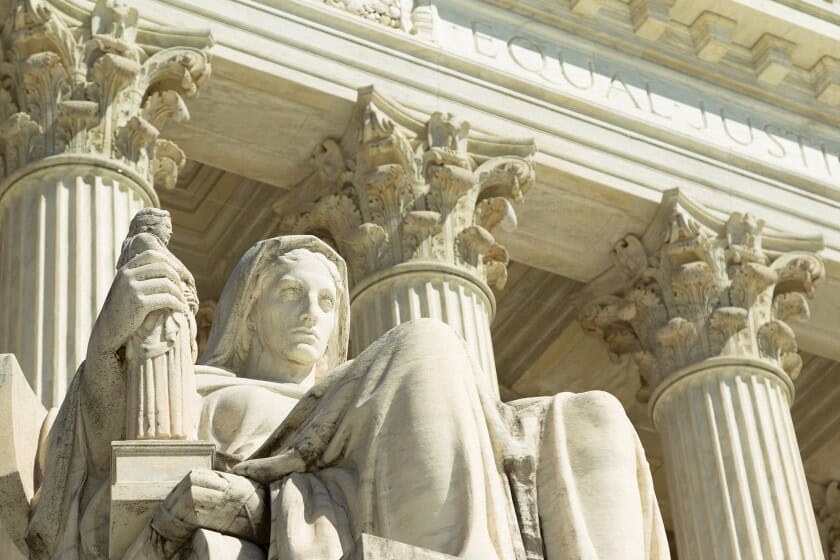
The Chevron doctrine, which was repealed in the U.S. Supreme Court’s June 28 decision in Loper Bright Enterprises v. Raimondo, hasn’t come up in securities cases often.
However, shareholder proposals — which were at the heart of Exxon Mobil Corp.’s (XOM) controversial lawsuit against Arjuna Capital Management Inc. earlier this year — are generally seen as an area where a challenge could emerge, if the Securities and Exchange Commission is targeted in a post-Chevron doctrine world. For 40 years, the legal doctrine gave federal agencies some latitude over how to interpret the statutes that they administer.
A case challenging the SEC’s authority to compel manufacturers to include activist proposals on their proxy ballot is already before the Court of Appeals for the Fifth Circuit, which hears cases from Texas, Mississippi and Louisiana.
Perspective Matters
The SEC suit, filed by the National Center for Public Policy Research, emerged after the securities regulator said that supermarket chain Kroger Co. (KR) could exclude a NCPPR shareholder proposal on its proxy statement.
Last May, the National Association of Manufacturers intervened on NCCPR’s behalf to argue that the agency lacks the authority to force companies to include activist proposals, under the agency’s Rule 14a-8, on corporate proxy ballots.
“Although the government hasn’t relied on Chevron in its briefing or at oral argument [in March], we think it’s accurate to say that the Supreme Court’s Loper decision makes our position even stronger,” noted Erica Klenicki, NAM’s deputy general counsel.
“In addition to raising First Amendment concerns with Rule 14a-8, we argue that the SEC lacks the statutory authority to compel corporations to disseminate shareholder speech in corporate proxy solicitations,” she said.
The SEC asserts that it has the authority to do so from broad statutory text enacted by Congress in 1934, she continued. “[But] under Loper, the SEC’s interpretation of that statutory text is entitled no deference, and the court must exercise its independent judgment in deciding whether the SEC has acted within its authority,” she added.
However, Luke Morgan, an attorney for the shareholder advocacy group As you Sow, pointed out that Congress has considered the agency’s 14a-8 rule multiple times over the past eight decades and that the SEC’s rulemaking authority isn’t ambiguous.
The lack of ambiguity on the statute and its intent is key because the Supreme Court’s decision in Loper suggests that, in cases where Congress has delegated broad authority to an agency, the repeal of the Chevron doctrine doesn’t necessarily change anything, he said. But this doesn’t mean that attempts won’t be made, he said.
More broadly, some experts say that it isn’t clear whether the Loper ruling will cause the Supreme Court or lower courts, like the Fifth Circuit or the D.C. Circuit Court, to reconsider areas of established SEC rulemaking.
Editor’s note: The original, full version of this article was published July 19, 2024, on The Deal’s premium subscription website. For access, log in to TheDeal.com or use the form below to request a free trial.
This Content is Only for The Deal Subscribers
If you’re already a subscriber, log in to view this article here.



